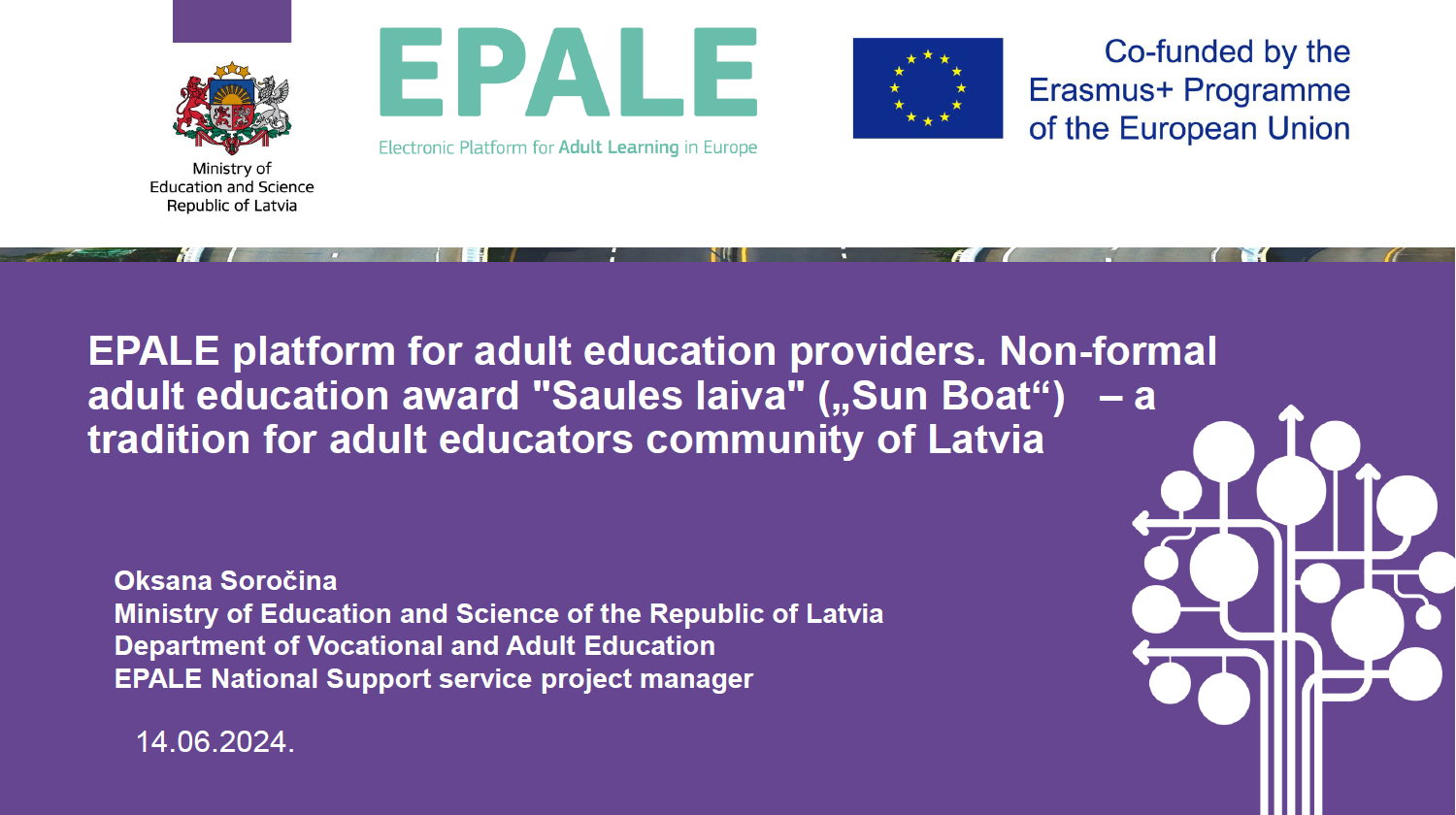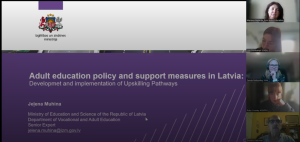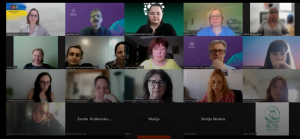8th Study Visit in Latvia (online)

How can policymakers and implementers involve regional partners, education providers and other organisations to build a sustainable support system for adult learning?
On 14 June, the State Education Development Agency (SEEDA) and the Latvian Association for Adult Education (LPIA) organised a virtual study visit within the Erasmus+ centralised project “Partnerships and cooperations for Upskilling Pathways” or “PartnerUP,” which involves adult education organisations and agencies. The visit was to learn about experiences and examples of good practices from different countries in Europe.
During the virtual visit, the project partners were introduced to the adult education system in Latvia. Ms Jelena Muhina, senior expert at the Department of Vocational and Adult Education, Ministry of Education and Science, gave the project participants insights into developing adult education policy and providing support measures in Latvia.
VIAA has a long-standing experience in coordinating adult education through the implementation of the European Social Fund project “Improvement of Professional Competence of Employed Persons”. Zanda Rutkovska, Head of the Lifelong Learning Analytics and Support Unit of the VIAA, told more about the project results, cooperation with local governments and involved partners, as well as innovations in the development of adult education and the provision of professional qualification development opportunities in the next (2024-2029) period.
Adult education increasingly focuses on digital skills. One of the most active organisations in this field is Riga TechGirls, which regularly launches new online programmes for everyone, especially inspiring women. Aiva Stanevich, founder and board member of the organisation, stressed the need to strengthen digital skills among women in every sector for equality, community building, and stronger cross-sector collaboration. Ingus Zitmanis, Director of the BUTS Training Centre, shared the company’s experience providing vocational training opportunities for adults, giving practical examples of successful public-private cooperation and noting the challenges that must be addressed.
At the end of the seminar, Oksana Sorochina, Project Manager of the EPALE Latvia National Support Service, told the participants about the annual tradition of the adult educators’ community – the non-formal adult education award “Sun Boat”, which is open to educational institutions and organisations working in the field of non-formal adult education, ensuring a consistently high-quality learning process and promoting the development of non-formal adult education in Latvia.
The Latvian experience has generated interest and stimulated discussion among representatives of partner organisations on how policymakers and implementers can involve regional partners, education providers and other organisations in developing a coordinated and systematic approach to streamlining and improving adult learners’ skills development opportunities.


